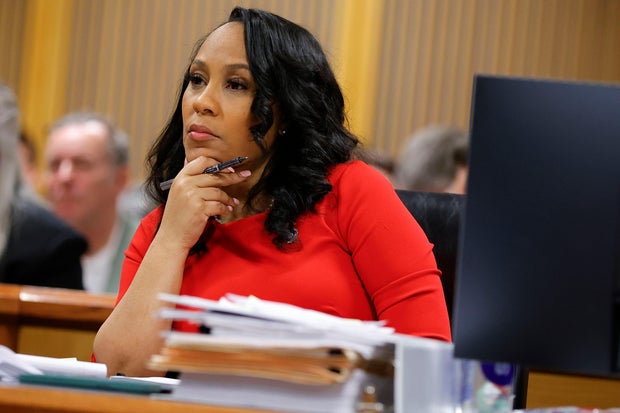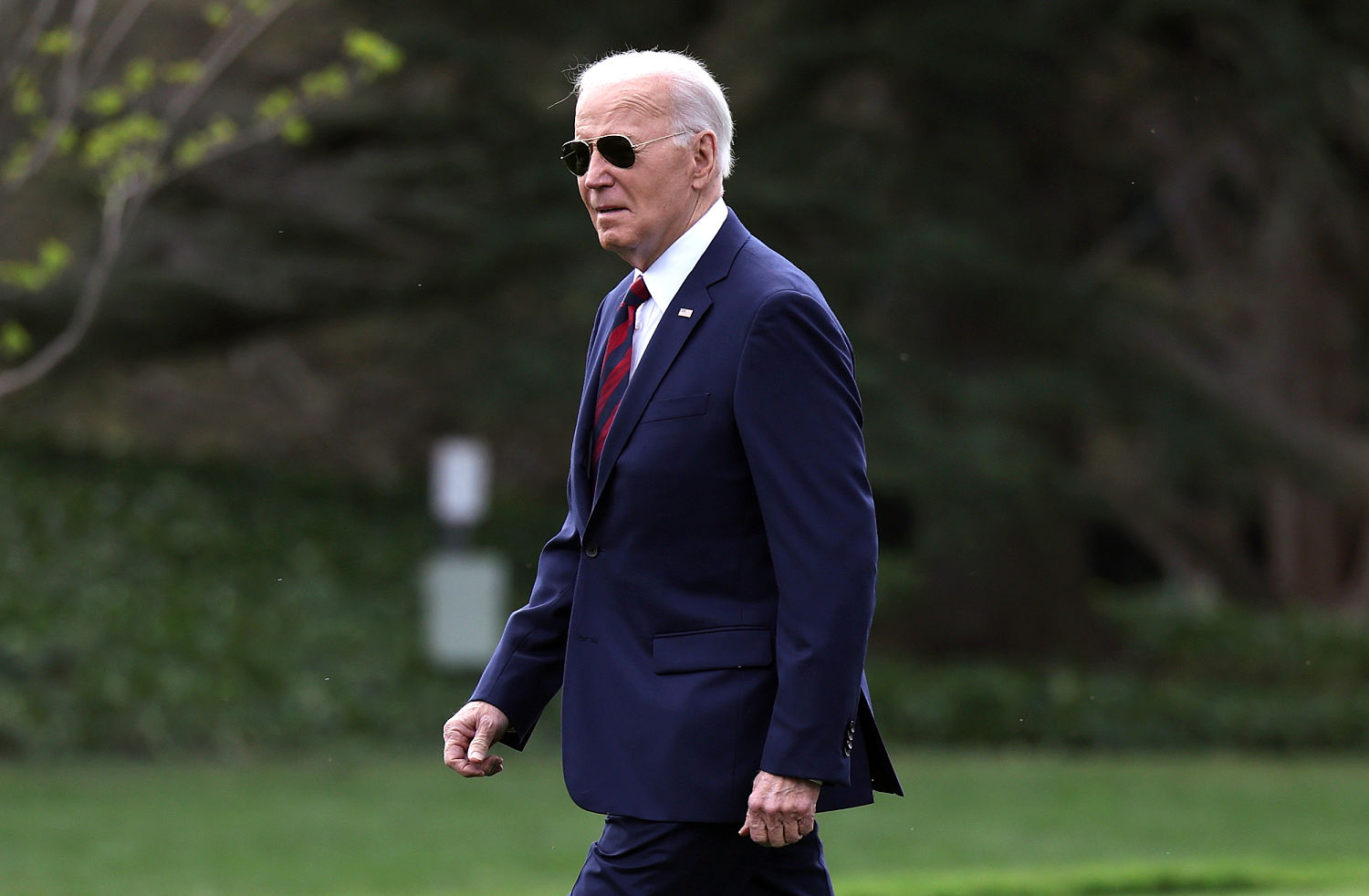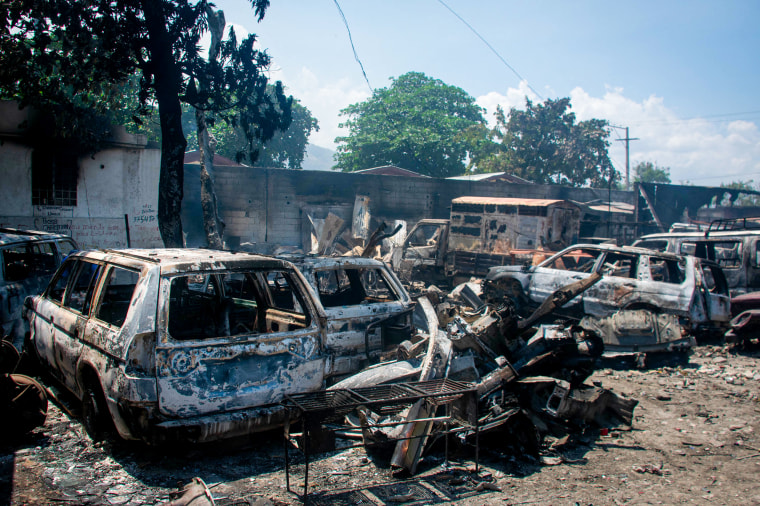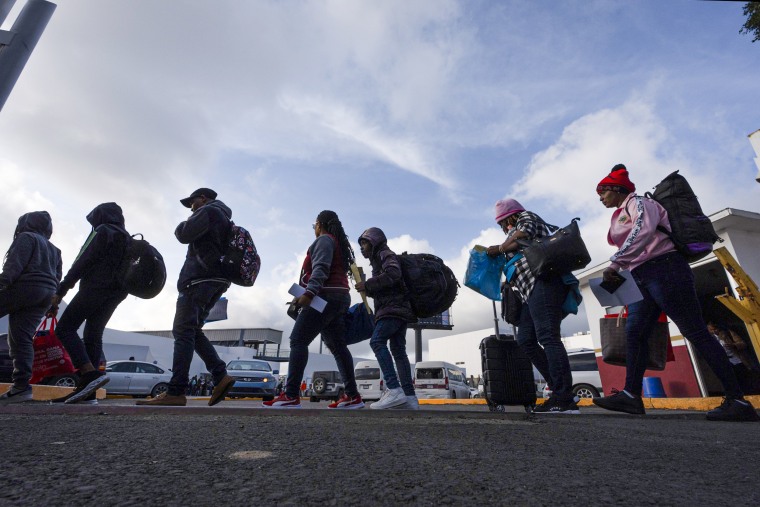Two weeks after Fulton County District Attorney Fani Willis survived a bid by defense lawyers to have her disqualified from the Georgia election interference case, she has all but taken over the case personally, focusing intensely on legal strategy and getting her team in fighting form for trial.
In a significant move along these lines, according to a source close to her, Willis has decided to play a leading courtroom role herself in the sprawling conspiracy case against Donald Trump and 14 co-defendants.
“I think there are efforts to slow down the train, but the train is coming,” Willis said with characteristic bravado during impromptu remarks to CNN as she was leaving a Georgia Easter egg hunt on March 23.
“I guess my greatest crime is that I had a relationship with a man, but that’s not something I find embarrassing in any way,” she added.
Willis had just endured a lengthy legal soap opera after lawyers for one of the defendants filed a motion on Jan. 8 alleging that she had a clandestine romantic relationship with outside lawyer Nathan Wade, whom she had tapped to lead the case. Over two months of withering testimony and legal argument, Willis had intimate details of her private life publicly aired, her judgment and integrity questioned, and saw the most high-stakes prosecution of her career teeter on the brink of collapse because of an indiscretion in her personal life.
Alex Slitz/AP/Bloomberg via Getty Images
In the end, Judge Scott McAfee ruled there was no actual conflict of interest that would have required disqualification of Willis and her entire office from the case. But he did conclude that Willis’ conduct created an “appearance of impropriety” that needed to be “cured” for her to continue. The solution was for Wade to resign from the case, which he did a few hours after the judge’s ruling.
Instead of replacing Wade with another lawyer from inside or outside the office, Willis is stepping up her own role in quarterbacking the case, CBS News has learned. She has already plunged into the nuts and bolts of trial strategy, including starting to lay out how evidence, including witnesses and documents, will be presented, a process known as “order of proof.”
At the same time, she is thinking about how to communicate the stakes of a case about protecting the democratic rights of Georgians — a far more abstract concept than typical murder or gang prosecutions — to a Fulton County jury.
Moreover, according to one knowledgeable source, Willis will now be the primary point of contact for defense lawyers in any future plea negotiations, a role that Wade had previously played.
Perhaps most consequentially, she is gaming out her own role in trying the case. Her appearance in the courtroom will not just be symbolic. Willis is seriously considering handling opening statements for the prosecution and examining key witnesses herself, according to sources familiar with her thinking, who requested anonymity to speak freely about her approach to the case.
Those who know the pugnacious and competitive DA well say a star turn in the courtroom — in the only case against Trump that will be televised — may put the distracting disqualification drama fully behind her. They say she is intent on shifting the public’s focus back onto Trump and his co-defendants for their alleged effort to overturn the 2020 election. It was a strategy she already showcased when she testified combatively in the disqualification hearing last month.
“You’re confused, you think I’m on trial,” she told defense lawyer Ashley Merchant. “These people are on trial for trying to steal an election.”
Willis’ stepped-up, high-profile public role in the case would also come as she runs for reelection in Fulton County. While it seems unlikely the trial would begin before the general election in November, she will likely have opportunities to argue pre-trial motions and procedural matters before then.
Any remarks about the case she makes inside the courtroom carry far less risk than whatever she might be tempted to say in the public arena, where she feels less restrained. She has already been admonished by McAfee for making “unorthodox” public remarks. The judge has hinted that he might impose a gag order on the case.
“Given the fact that she just barely walked away legally unscathed and that there is an appeal, I think a little extra caution would pay off dividends,” said Anthony Michael Kreis, a professor of law at Georgia State College of Law, who has been following the election interference case closely. But at the same time, Kreis said Willis has every “right and prerogative” to try the case herself and called doing so a potential “rehabilitation moment.”
Willis was always likely to play at least some public-facing role in the trial, if for no other reason than to show her constituents how seriously she was taking a case that she regards as core to their rights as Americans and Georgians, according to a close friend of Willis’. But it was only after going through the searing two-month disqualification ordeal that she decided to play a leading, if not the leading trial role, sources tell CBS News.
Willis earned a reputation as a courtroom practitioner over a two-decade career of trying and winning hundreds of murder, rape and gang cases, but also leading some of the most complex prosecutions ever brought in Georgia. Chief among them was the Atlanta Public Schools cheating case, a Georgia RICO prosecution — involving the same conspiracy statute under which Trump and his co-defendants were charged — against more than a dozen teachers, principals and administrators. All but one of the 12 defendants who went to trial were convicted in what still stands as the longest trial in Georgia history.
“She combines a level of preparation unmatched by any attorney I have ever seen, with a very rare ability to connect with a jury at that gut level,” said Charley Bailey, a former Fulton County assistant DA who has tried cases with Willis and is a close friend.





